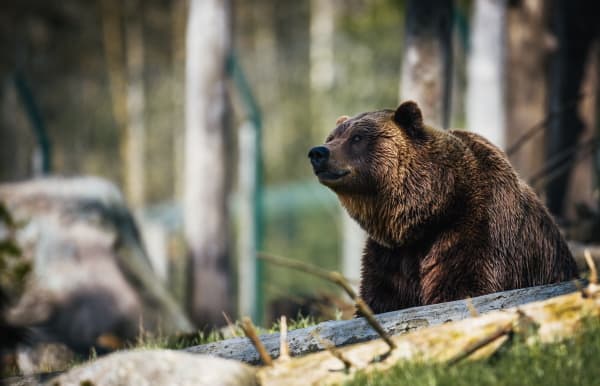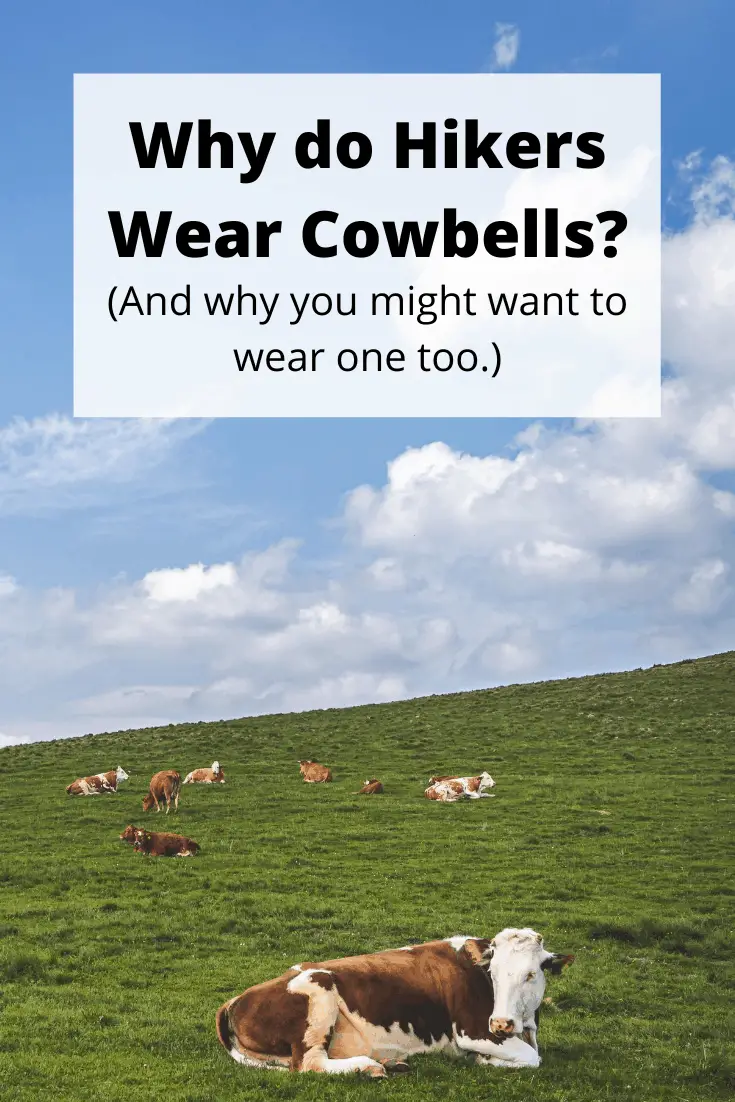
You’ve probably seen or at least heard of people wearing cowbells, also known as bear bells, when they hike. Once you know why hikers wear cowbells, it makes a lot of sense that they do. This being said, the idea that a hiker would wear a cowbell can be confusing to people who do not know why a hiker might wear one.
So, why do hikers wear cowbells? Hikers wear cowbells to warn bears and other animals that they’re approaching. This reduces the chances that the hiker will be unnecessarily attacked by a startled animal on the trail.
If you know anything about animals, you know that a startled animal is much more likely to attack you. They do this more out of protective instinct rather than anything else.
Unfortunately, with bears, mountain lions, and other large animals, this can prove deadly. To get around this problem, hikes are encouraged to make enough noise so that animals will know they are coming long before they get close to them. Groups of hikers might talk to each other, solo hikers might sing or even play a small instrument.
An alternative to this is to simply carry gear that makes noise as you walk. The problem with this strategy, however, is that some sounds are more likely to trigger a predatory response in large carnivores like bears and mountain lions. The theory with wearing cowbells is that the sound a cowbell makes does not evoke this type of predatory response.
Do Cowbells Work
There is some debate over whether cowbells actually work or not. Some people feel that they’re great at announcing their presence and that the bells keep them safe while they’re hiking alone.
Other people feel that the cowbells may actually make you more susceptible to an animal attack. They believe that bears may associate cowbells with hikers and that they may associate hikers with a free meal.

Others even believe that cowbells could attract curious mountain lions. In this case, the bell you’re wearing to keep animals away from you may be calling them to you.
Has anybody done any real research on whether bear bells work or not?
A study was done in 1982 and the results were posted in issue 3 of the Essays on Park and Recreational Education. This study did show that the bells may reduce the likelihood of a hiker being charged by a bear.
Unfortunately, this study is the only real study I found on the subject.
On the other hand, I haven’t found any studies that have shown that these bells attract animals. This leads me to conclude that bear bells probably won’t do you any harm and they may even help reduce your encounters with wildlife.
The Pros and Cons of Wearing A Bell When Hiking
Now that we know what hiking bells do, let’s take a look at the pros and cons of wearing them.
The Benefits of Wearing a Cow Bell When Hiking
- They may reduce your chances of getting attacked by a wild animal.
- They may reduce your chances of getting run over or run into by mountain bikers and trail runners.
Cowbells were created for one purpose so there really aren’t many benefits outside of what they were designed to do. They make a sound and this sound lets people know you’re coming.
The sound may deter animals and it may not. However, the sound will definitely let mountain bikers, runners, and other hikers know you’re coming so it could prevent a collision.
The Drawbacks of Wearing a Cow Bell
- They may not work.
- They can be annoying to listen to.
- They might reduce your wildlife encounters.
- They add to your base weight.
As we mentioned earlier, animals may not care whether you’re wearing cowbell or not. Also, they’re noisy and they could make your hiking trip less pleasant for you and the people around you.
Another thought to keep in mind is that not all animal encounters are scary. Personally, I like going into the woods and observing wildlife. A bell that sends animals running off long before I reach them wouldn’t be very useful for me in this regard.
Cowbells also add weight to your pack. They don’t weigh a lot but they will make it that much harder for ultralight backpackers to meet their weight requirements.
How To Stay Safe Without a Cowbell
Whether you have a cowbell on or not, you really need to take steps to keep yourself safe from wildlife both on and off the trail. Know what kinds of animals live in the areas you’ll be hiking through and find out how to properly engage and disengage with them.
Also, learn how to avoid dangerous animals as best as you can. For example, don’t hike through areas with large populations of mountain lions at dawn, dusk, or at night.
When hiking through bear country, always take bear spray with you. Also, be sure to make some noise as you hike so that you don’t accidentally sneak up on them.
For more detailed instructions on how to stay safe in bear and mountain lion country, see my posts on bears and mountain lions. These posts will tell you everything you need to know to both avoid and survive encounters with these majestic animals.
Final Thoughts
If you’re looking to stay safe in the wilderness, there are better options than cowbells for doing so. Make sure you take advantage of those options first.
However, once you’ve taken those measures, it can’t hurt to throw a cowbell on your pack as well. A cowbell won’t cost you much and if you don’t like it, you can always give it away.


